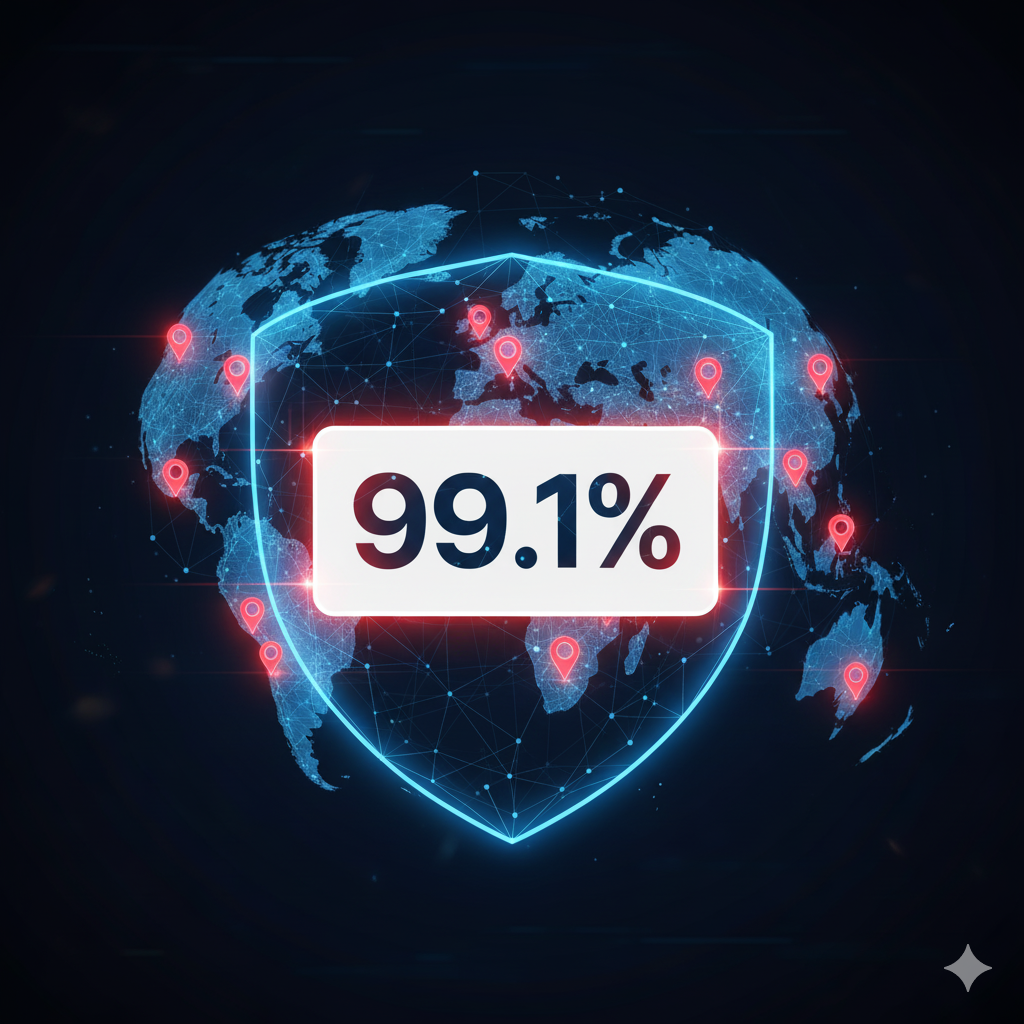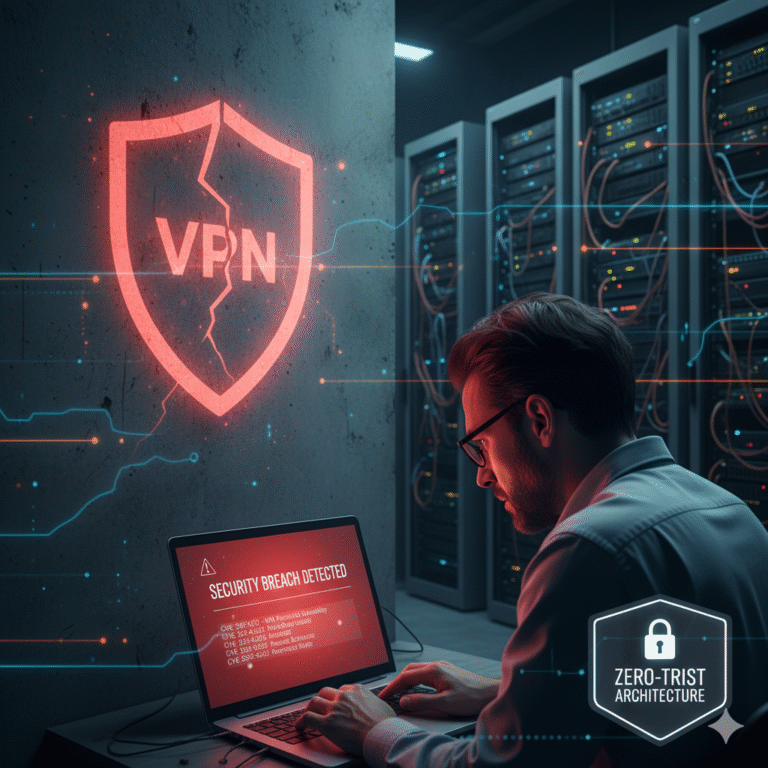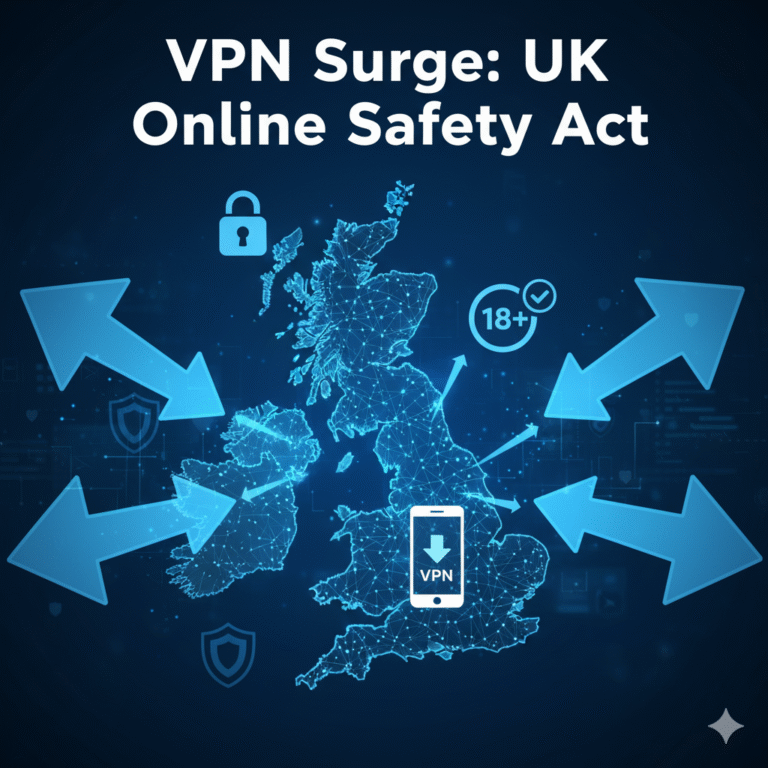GeoComply’s latest independent test results show their GeoGuard VPN-detection product achieved a 99.1% VPN detection rate with a 0% false-positive rate in lab testing — a headline number that will resonate across streaming, finance and fraud-prevention teams. As more traffic becomes encrypted and privacy tools proliferate, businesses and platforms rely on reliable signals that distinguish legitimate privacy use from fraud or geo-circumvention. GeoComply’s claim, validated by a third-party test, marks a significant milestone in that arms race.
What the tests show (and who ran them)
GeoComply announced that Kingsmead Security Ltd, an independent consultancy, completed the most recent round of tests against GeoGuard™. The test suite covered streaming and fraud use cases; GeoGuard reportedly scored 99.1% in VPN detection, 99.8% accuracy for streaming scenarios, 99.9% for other fraud cases, and 0% false positives in the reported dataset. Those metrics matter because high detection accuracy combined with near-zero false positives reduces both revenue loss from geo-fraud and unnecessary customer friction.
GeoComply also points to its large IP database (hundreds of millions of IP records) and continual heuristic updates as the reason it can track evolving anonymization techniques such as residential-IP hijacking, proxy-over-VPN, and other spoofing methods.
Why businesses care: use cases & risks
Streaming platforms lose revenue to geo-circumvention; financial institutions face account takeover and fraud when attackers route through VPNs; online marketplaces see elevated chargeback risk. Accurate VPN detection helps platforms apply adaptive friction (step-up authentication), block abusive sessions, or enforce licensing/geoblocking rules — all while avoiding false blocks of legitimate users. GeoComply frames GeoGuard as a cross-industry tool used by media, fintech, airlines, and e-commerce teams to reduce fraud and protect content.
How does GeoGuard get such high accuracy?
GeoComply’s approach combines multiple signals: a large and frequently updated IP intelligence database, telemetry about connection attributes, density and behaviour analysis, and pattern detection for sophisticated evasion techniques (e.g., hijacked residential IPs, proxy chaining). The company positions GeoGuard as an adaptive system that integrates with CDNs and fraud stacks so detection becomes a contextual signal rather than a blunt block. Their public materials highlight precision and low disruption as key design goals.
It’s worth noting the detection field is also advancing in academia: recent machine-learning research (wavelet features + RF / NN models) has shown >98–99% capability in binary VPN traffic classification under controlled datasets — illustrating that a combination of engineering scale (big IP databases) and modern ML can both reach high performance. Those studies suggest lab success is achievable, but real-world deployment still faces adversarial actors and data drift.
Caveats & what “99.1%” does NOT mean
Lab vs. field: Independent lab tests demonstrate capability, but production environments are messier. Attackers adapt; new VPN/proxy services appear; false positives can rise under different traffic mixes. GeoComply’s 0% false positive claim refers to that test dataset — not an absolute guarantee for every deployment.
Context matters: Detection should be a signal used alongside device, behavioural and account history. Blocking based solely on VPN detection risks denying privacy-conscious legitimate users. Modern risk teams use adaptive flows (step-up checks) rather than blanket bans.
Industry reaction & positioning
GeoComply is widely used in media and gambling for geo-compliance and anti-fraud. The announcement underscores a market trend: providers of anti-fraud and identity signals are investing heavily in identifying anonymized connections so businesses can balance accessibility with safety and rights management. Competitors and complementary vendors (Fingerprint, IPQualityScore, etc.) emphasize integrating VPN detection into broader device and behavioural signals to reduce false positives and make smarter decisions.
Practical recommendations for product and security teams
Treat VPN detection as a risk signal, not an absolute block. Use it to trigger step-up authentication or review flows.
Monitor for data drift. Periodically re-test detection efficacy against fresh data and adversarial samples.
Combine signals. Correlate VPN detection with device fingerprinting, user history, and transaction risk scoring to avoid mistaken blocks.
Assess vendor transparency. Look for independent test results and documentation about false positive handling and privacy practices.
learn more about EU “Chat Control” draft sparks VPN industry concern over encryption
Conclusion —
detection improves, but the cat-and-mouse continues
GeoComply’s reported 99.1% detection rate is a strong signal that VPN detection technology has matured and can deliver business-useful accuracy when combined with robust datasets and ongoing testing. However, the detection frontier is adversarial: as detection improves, so too will evasion tactics. For platform owners, the sensible path is to use high-quality VPN detection as one signal among many — applying contextual responses that protect revenue and security while respecting legitimate users’ privacy.
Sources & verification
GeoComply press release: GeoComply Sets New Benchmark in VPN Detection (Business Wire). (businesswire.com)
Coverage & distribution: Yahoo Finance summary of the press release. (finance.yahoo.com)
GeoComply GeoGuard product page and capabilities. (GeoComply)
Market & industry context (awards and prior testing). (bctechnology.com)
Academic context on ML VPN detection approaches. (arXiv)



